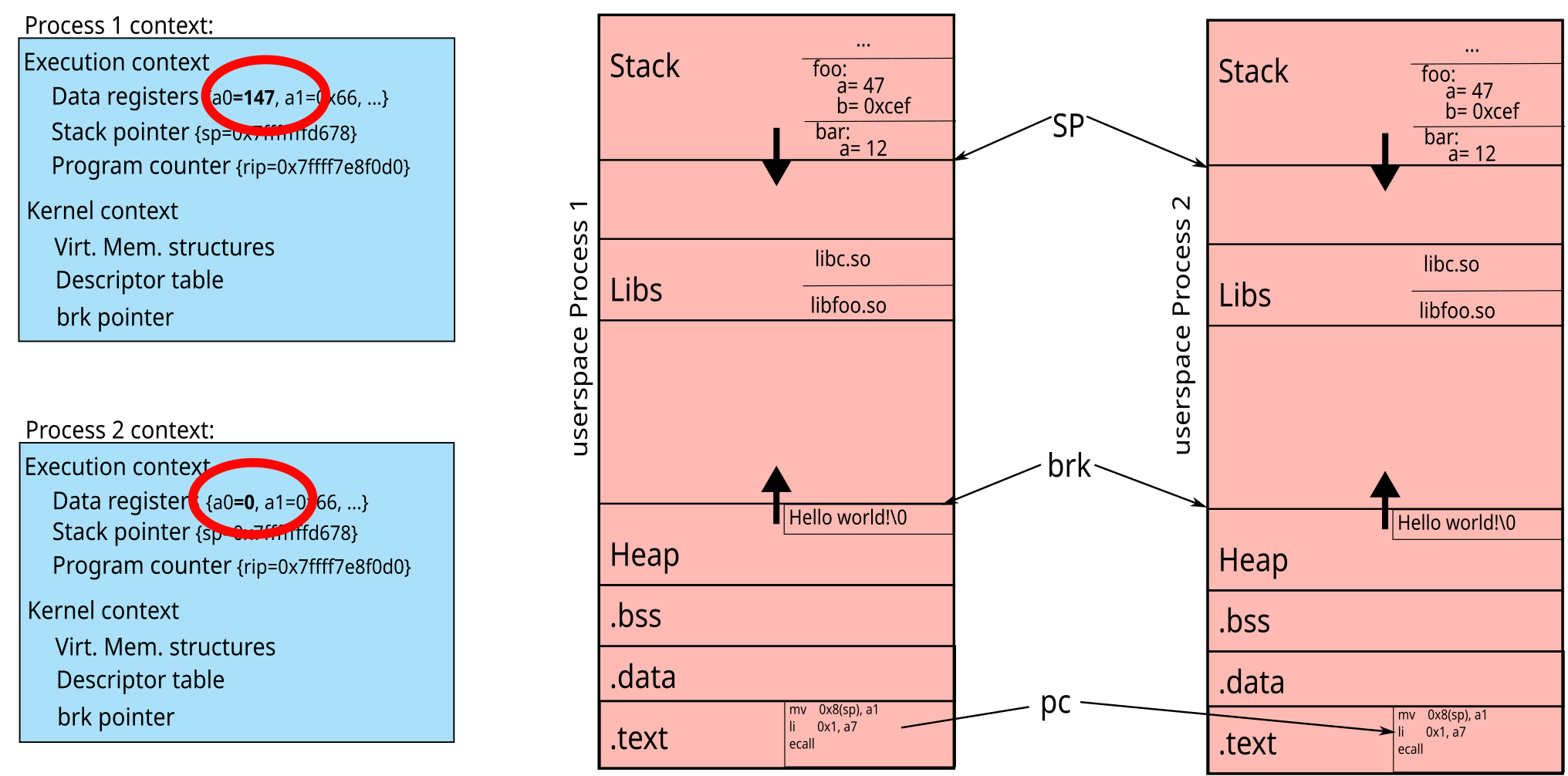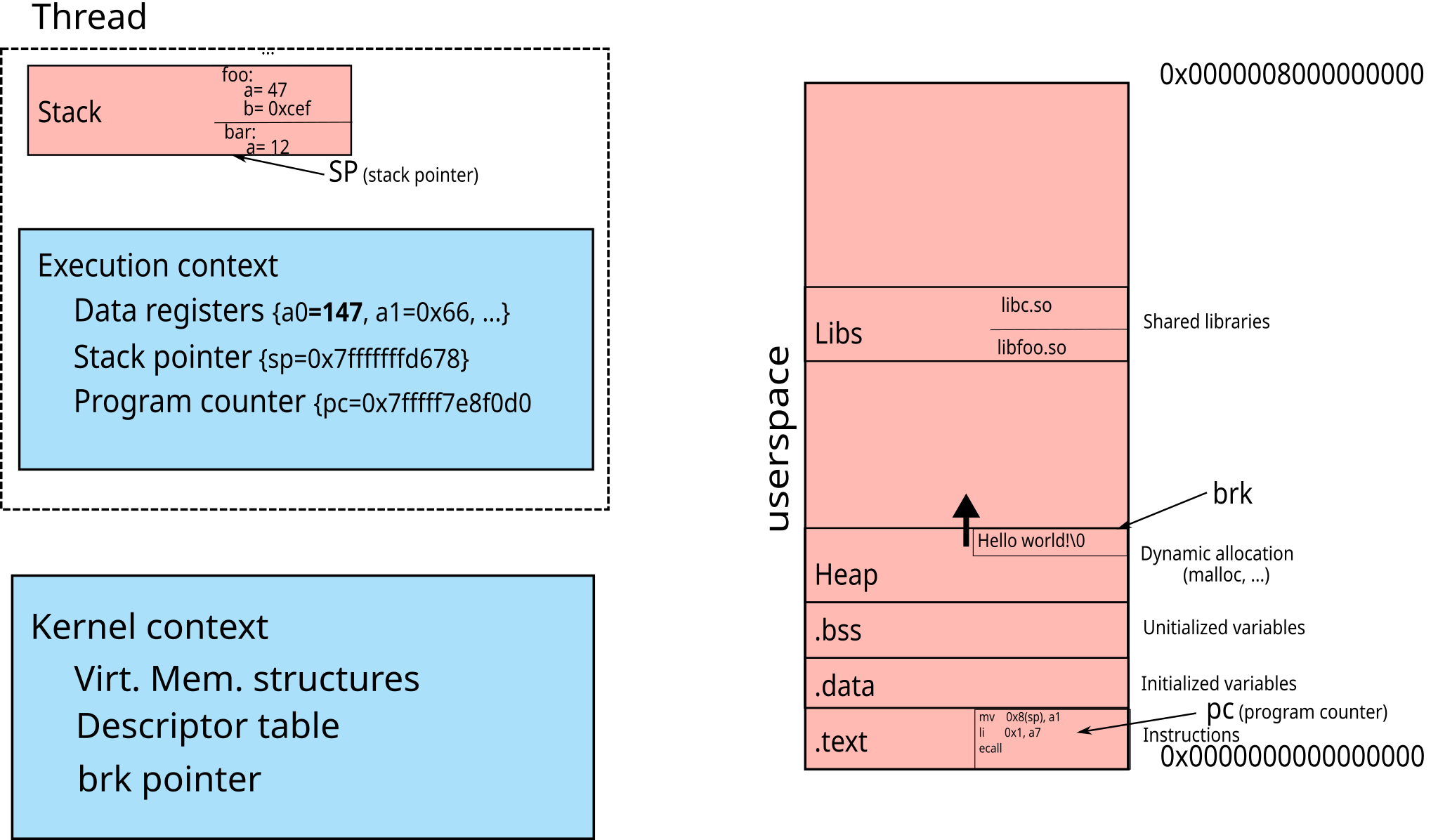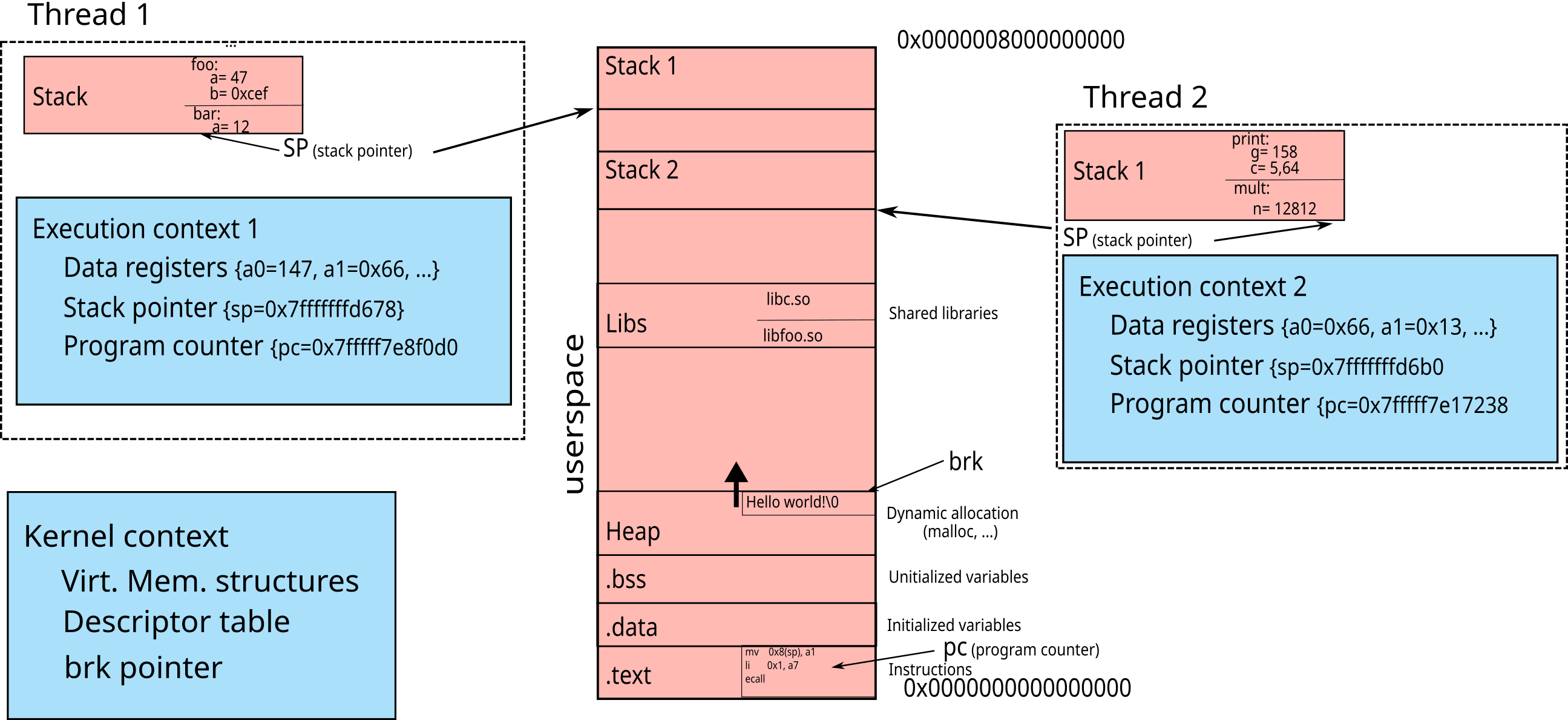Threads
François Trahay

Execution context of a process
- Context: execution context + kernel context
- Address space: code, data and stack

Duplicating a process
- Fork creates a new process and duplicates
- Context: execution context + kernel context
- except for the
a0register (where the return value is stored)- On x86_64 architecture, this is the register
rax
- On x86_64 architecture, this is the register
- Address space: code, data and stack

Execution flows
Execution flow ! = Resources
- Execution flow (or thread) : execution context + stack
- Resources: code, data, kernel context

Multithreaded process
- Several execution flows
- Shared resources

Creating a Pthread
int pthread_create(pthread_t *thread,
const pthread_attr_t *attr,
void *(*start_routine) (void *),
void *arg);attr(in): attributes of the thread to be createdstart_routine(in): function to be executed once the thread is createdarg(in): parameter to pass to the functionthread(out): identifier of the created thread
Other Pthread functions
- Terminates the current thread with the return value
retval
- Wait for the
tidthread to terminate and get its return value
Sharing data
- The memory space is shared between the threads, in particular
- global variables
- static local variables
- the kernel context (file descriptors, streams, signals, etc.)
- Some other resources are not shared
- local variables
Thread-safe source code
- thread-safe source code: gives a correct result
when executed simultaneously by multiple threads:
- No call to non thread-safe code
- Protect access to shared data
Reentrant source code
- Reentrant source code: code whose result does not depend on a
previous state
- Do not maintain a persistent state between calls
- example of a non-reentrant function:
freaddepends on the position of the stream cursor
TLS – Thread-Local Storage
- Global variable (or static local) specific to each thread
- Example:
errno - Declaring a TLS variable
- in C11:
_Thread_local int variable = 0;
- in C11:
- Example:
Synchronization
- Guarantee data consistency
- Simultaneous access to a shared read / write variable
x++is not atomic (consisting ofload,update,store)
- Simultaneous access to a set of shared variables
- example: a function
swap(a, b){ tmp=a; a=b; b=tmp; }
- example: a function
- Simultaneous access to a shared read / write variable
- Several synchronization mechanisms exist
- Mutex
- Atomic Instructions
- Conditions, semaphores, etc. (see Lecture #3)
Mutex
Type:
pthread_mutex_tInitialisation:
pthread_mutex_t mutex = PTHREAD_MUTEX_INITIALIZER;int pthread_mutex_init(ptread_mutex_t *m, const pthread_mutexattr_t *attr);
Usage:
int pthread_mutex_lock(pthread_mutex_t *mutex));int pthread_mutex_trylock(pthread_mutex_t *mutex);int pthread_mutex_unlock(pthread_mutex_t *mutex);
Terminaison:
int pthread_mutex_destroy(pthread_mutex_t *mutex);
Atomic operations
Operation executed atomically
C11 defines a set of functions that perform atomic operations
C atomic_fetch_add(volatile A *object, M operand);_Bool atomic_flag_test_and_set(volatile atomic_flag *object);
C11 defines atomic types
- operations on these types are atomic
- declaration:
_Atomic int var;or_Atomic(int) var;